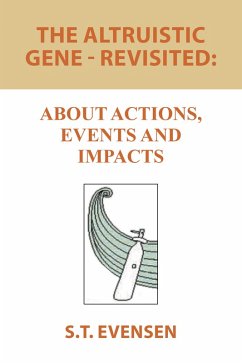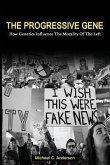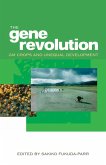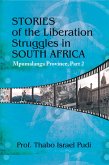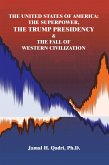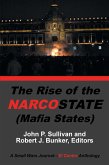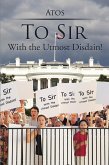This book replaces a fiction (2005) in the Altruistic Gene trilogy and covers what really happened to an industrial family in 2005-2018. It signals faith in the power of collaboration to attain social impact by effective altruism, a. o. setting new standards benefiting others. The book offers perspectives on business, institutional, as well as societal development. It also relates historic values of peripheral isles and coastal areas in Northern Europe, namely, gender parity and the right to resist by freedom of speech in a direct democracy protected by common law. Telling about the actuality of these values, that is the purpose and rationale of the book. Part 1 of the book follows the elders of the family from 2005 until 2011. The elders foresaw structural changes, as well as crises of trust caused by elite circulation/collusion and fragmentation of decision-making benefiting special interests. They chose to carry through a transition of power to their children whom had become stepparents of two nephews-victims of their biological parents' high and deadly profiles. A primary objective of the transition was to protect the family and reduce its profile in the media and markets by divesting holdings in traditional industries. The elders wanted the stepparents to prepare the next generation for an early transition of power, and they involved the family's confidants as mentors. They also financed a task force for security and intelligence with a hidden agenda. Part 2 and 3 of the book follow the endeavors of the next generation during 2012-2018. The family's values made the next generation take on responsibilities with a strong sense of duty. The two adopted sons sought innovation and experiences in both the south and north of Europe, where they were faced with the causes and later repercussions of economic crises in 2007-2009. The collusion resulted in crises of trust and debt. Their findings on deliberative, transparent pluralism: Good governance requires agility, enterprise, and ethics, as well as collaboration, fair play, and predictability. They pursued ideas benefiting the atomist (the individual without influence alone) by impartiality, coresponsibility, empowerment, and collaboration. They saw the need to reinvent activities of trustees/fiduciaries and facilitate effective basic infrastructure, benefiting also small- and midsized enterprises (SMEs) without names in the markets and media. Therefore, they decided to promote and participate in a social enterprise for impact investing, organized as an innovative collaborative value network (CVN). A CVN can reach into the real economies of maritime regions where needs of owners/enterprisers and investors are similar everywhere. The book draws a circle with an unexpected end: one of the adopted sons encounters a young woman with a surprise connection to the death of his biological parents. An early transition starts, and a CVN approach for impact investing is set in motion. New ways are commenced, e.g., efforts to stop favoring of special interests, as well as to draft a pact on altruism* against obscurantism. Telling about these endeavors ends the author's book series** on pluralism, ethics, and enterprise. *The draft pact on altruism is not important, but the idea of such a draft is, when spread in growing circles. **This book and Nordic Model Analyses (2016) invite readers to participate in an anthology for building alternative visions of Nordic and similar societal models by combining pluralism, ethics, enterprise, and welfare, as well as gender parity, secularity, diversity, and ecumenism. Cf. www.bankier.co
Dieser Download kann aus rechtlichen Gründen nur mit Rechnungsadresse in A, D ausgeliefert werden.

